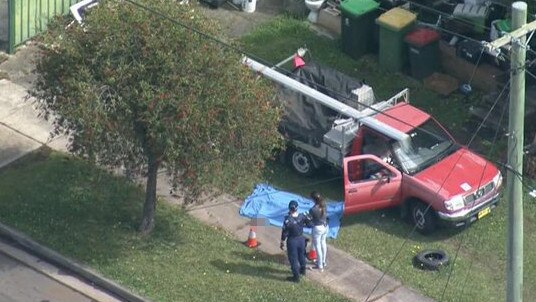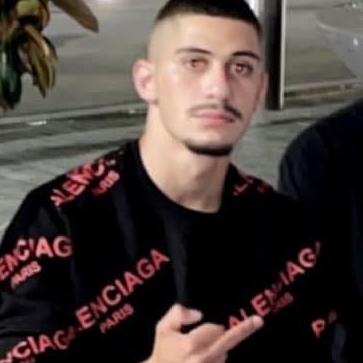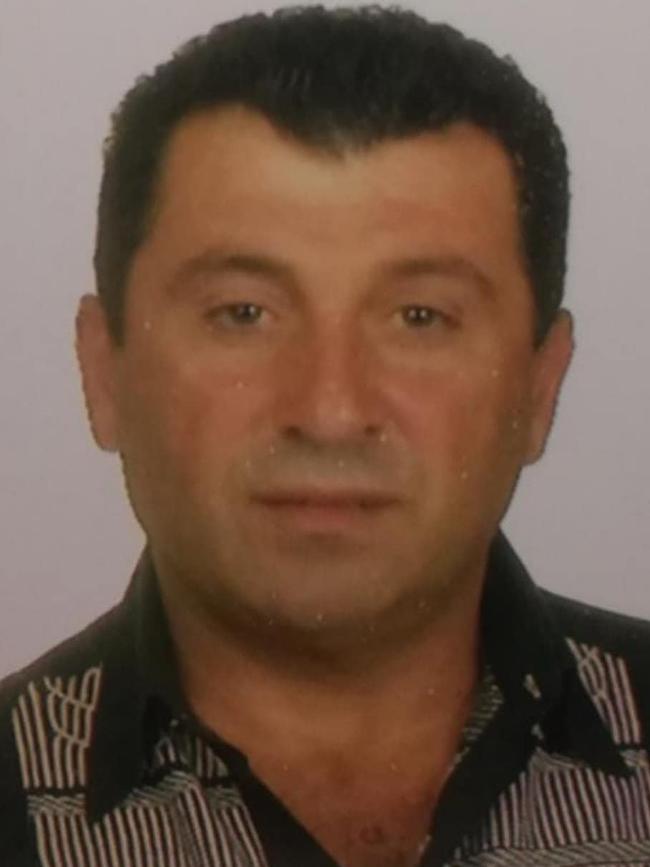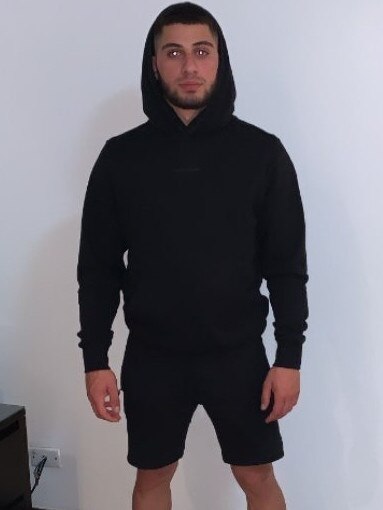How 18-year-old Salim Hamze went from smiling son to slain teenage gangster
Salim Hamze was only five months past his 18th birthday, but already there was a price on his head. This is why …
Police & Courts
Don't miss out on the headlines from Police & Courts. Followed categories will be added to My News.
At an age when most are revelling in their first McDonald’s run or nightclub visit, Salim Hamze had a gun stashed in the cup holder of his driver’s side door.
He was only five months past his 18th birthday, but already there was a target firmly on his back.
Being a teenage gangster would eventually cost not only Hamze his life, but also that of his father Toufik – who was sat beside him in a Ute outside his Guildford home in October 2021 when gunmen opened fire.
The Homicide Squad is investigating the father and son’s murders, with its boss Danny Doherty recently telling how Mr Hamze was aware of Salim’s issues and had tried to help him get his life back on track.
“He was the loving father of Salim and ultimately, he paid the ultimate price – he is paying for the sins of the son,” Detective Superintendent Doherty said, putting a twist on the age old quote.

The biggest “sin” police believe Hamze committed and the reason people wanted him dead was for killing Shady Kanj – a low-level drug runner for the rival Alameddine clan – in August 2021.
But underworld sources say that was not his only misdemeanour.
“He was a shooter for the Hamzys, a bit of a hired gun, he did another drive-by or two for them,” one underworld source said.
One of the last photos taken of Hamze before his death shows him smiling in a selfie next to a small group of females, just like any normal teenage kid.
But other images, which showed him wearing luxury brands such as Balenciaga, highlighted the real life of the teenage gangster whose court papers listed him as “unemployed”.
Hamze’s path to the gangster life that would lead to his death started with run-ins with police early on.
By 18 he had aligned himself with the Hamzy organised crime network, at the height of what police allege is a heated battle with the rival Alameddine organised crime network that has seen more than a dozen killings on Sydney’s streets in the past 20 months and that continues today.

As part of their efforts to quieten the feud police took out a number of firearm prohibition orders (FPOs) on members of both sides, including Hamze.
About 8am on a Friday morning in September 2021, police arrived at his mother’s Auburn home to do an FPO compliance check, but when Hamze saw the officers he did a runner.
In the meantime they searched a vehicle parked outside and found a loaded gun and drugs.
Police sources say when they caught up with Hamze and asked him why he had the revolver when he was well aware of the rules of the FPO, he admitted it was for “protection”.
“He was scared, he knew they were after him,” a police source said.

Little more than a month later he, and his innocent father, would be dead.
Speaking for the first time since the double murder, a relative of Hamze’s said they had been left shattered by the tragedy.
“As much as you want to, you can’t feel how I’m feeling,” the relative, who asked not to be named because of ongoing fears about reprisal attacks, said.
“I can’t explain it, I’m still suffering. He was a beautiful kid, smart, intelligent, such a beautiful heart … he worked seven days a week with his dad.
“God will punish the people that did this, I believe that.”


But when asked if they were aware of why the teenager they knew may have been shot, the relative claimed to be in the dark.
“The police haven’t told us anything. If you know, you tell me,” they said.
When informed about Hamze’s believed involvement in Shady Kanj’s killing they refuted the suggestion.
“He wouldn’t do that, never,” they said.
The relative also clarified that Salim and Toufik Hamze were in no way related to many other men with the same last name who are either dead, or in jail, as a result of serious crimes or the current gang feud.
Renowned criminal psychologist Tim Watson-Munro has studied hundreds of young men with gang links and convictions for gun crimes, including murder.
He says the fact Hamze had run ins with the police as a youngster and would have grown up in an area that regularly experiences violence led him down the path to criminality.
“Obviously these guys, people like him, were desensitised to violence,” Mr Watson-Munro said.
“With the greatest respect to that community, they’re living it all the time, it’s just normalised, it’s happening all the time there.
“And of course you have this strong need to identify with a group and there’s peer group pressure to conform and in a way it’s like a career path.


“There’s probably a bit of a hero status in the group too when you’re the guy shooting people.”
In one of the last photos taken of Hamze he poses smiling next to his mother and two other female relatives.
It is a rare show of innocence and a reminder that he was still a young man, something Mr Watson-Munro says.
“My first job was at Parramatta jail and you never saw 18-year-olds in jail for this thing, your typical 18-year-old was a car thief, they didn’t progress to guns until much later in life,” he said.
“It’s almost like some sort of real life computer game now and I don’t see it going away, it’s going to keep escalating.
“The cone of silence is impenetrable, but we saw in Melbourne’s underworld the cone of silence all fell apart when one guy rolled over, they all started doing deals, but I don’t think we’re there yet in Sydney.”



